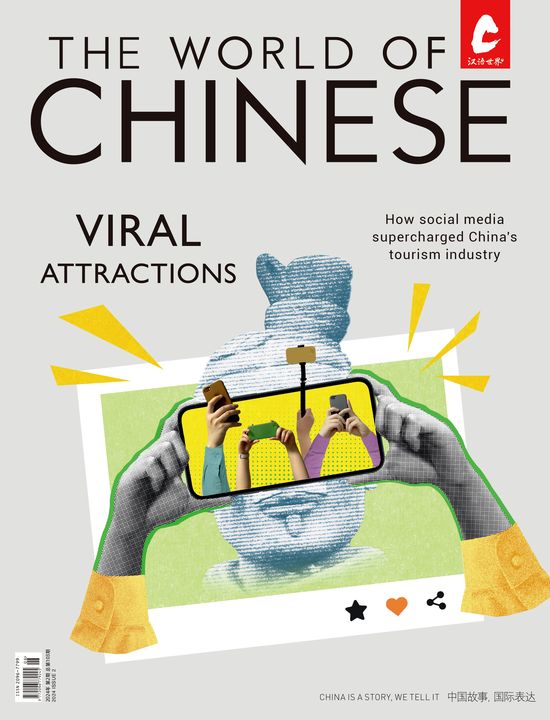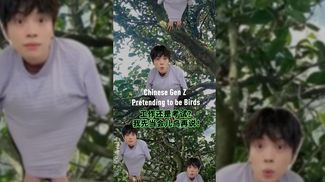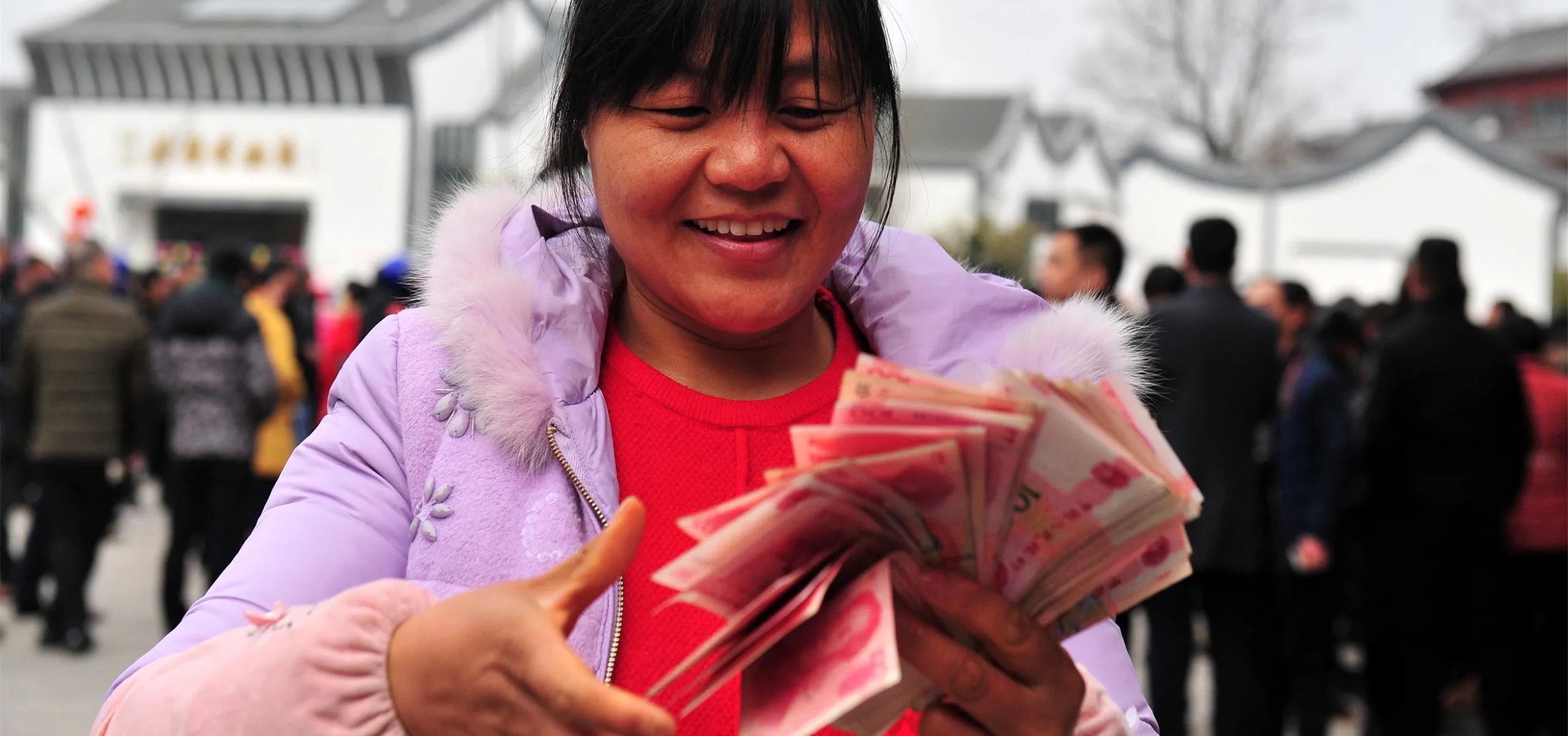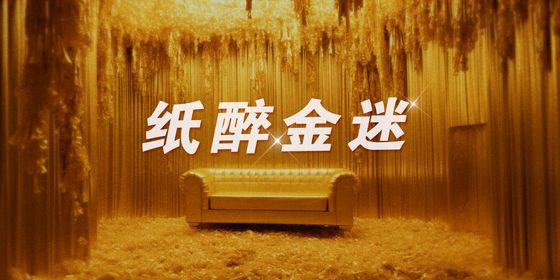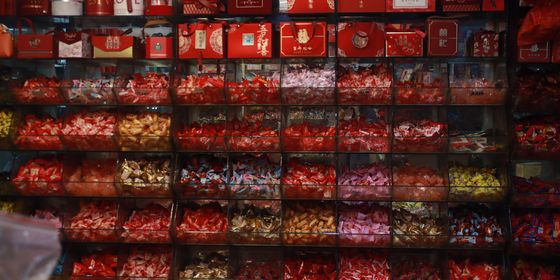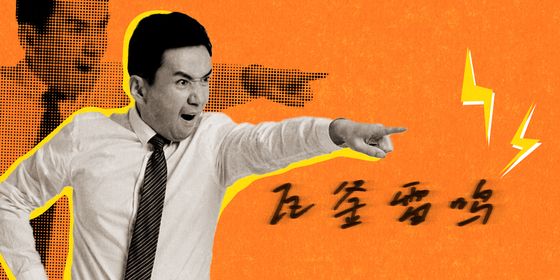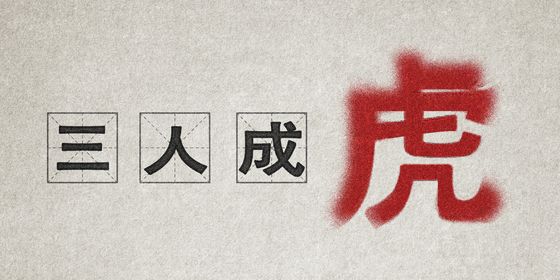Idioms about money for spendthrifts and cheapskates this November 11 shopping festival
With pre-sales for the “Singles Day” shopping festival seeing millions of RMB spent on online shopping platforms, many netizens in China are already facing the prospect of a cavernous hole in the bank accounts where their savings used to be. After their sprees lead to a period of figuratively “eating dirt (吃土 chītǔ),” because they’ve spent so much that they can’t afford to eat much else, shopaholics may vow to “chop off [their] hands (剁手 duòshǒu)”: metaphorically cutting off an appendage so they will stop ordering more items.
These slang terms are a part of Singles Day internet-speak coined by web users in recent years, but there also exists a plethora of traditional chengyu that are perfect for describing one’s shopping habits. The stories behind these idioms, some hundreds of years old, prove that overspending on retail therapy is not just a modern phenomenon.
大手大脚 dàshǒu dàjiǎo
Big hand and big foot
If you finally find the courage to check your bank balance on November 11 after an evening browsing Taobao for the best deals, and find you have spent an obscene amount of money, then you might be considered to have “big hands and big feet.”
This term describes lavish spenders who are reckless with money and originates from the Qing dynasty’s (1616 – 1911) classic novel Dream of the Red Chamber. In Chapter 51, a servant uses this expression to praise Wang Xifeng, one of the main characters, for her generosity. Now, however, this term has morphed into a pejorative phrase for those who spend extravagantly.
He has always been reckless with money; you can’t expect him to change in such a short time.
Tā huāqián yíxiàng dàshǒu dàjiǎo, nǐ bù néng zhǐwàng tā zhème kuài jiù gǎibiàn.
他花钱一向大手大脚,你不能指望他这么快就改变。
一掷千金 yízhì qiānjīn
Stake a thousand pieces of gold on one throw
This term usually refers to impulsive consumption behavior. The character “掷” means “to lay a wager,” and generally refers to gambling with high stakes.
The Tang dynasty (618 – 907) poem “Song of Youth” by Wu Xiangzhi (吴象之) features a fearless but ignorant young man who “dares to stake a thousand taels of gold on one throw, and doesn’t even realize the poverty his family is already in (一掷千金浑是胆,家无四壁不知贫 yízhì qiānjīn hún shì dǎn, jiā wú sìbì bù zhī pín).” Nowadays, this chengyu is a neutral term for those who spend too much. For example:
Top football clubs often spend millions to buy star players.
Háomén qiúduì jīngcháng yízhì qiānjīn qù shōugòu míngxīng qiúyuán.
豪门球队经常一掷千金去收购明星球员。
挥金如土 huījīn rútǔ
Throw money about like dirt
If you often 一掷千金, your spending habits could be summarized as “throwing money about like dirt.” Originating in the book Qidong Yeyu (《齐东野语》), a history text created by Zhou Mi (周密), a scholar in the Song dynasty (960 – 1279), this chengyu uses a metaphor to describe someone who squanders their money. For example:
He must be crazy to throw his money about like dirt.
Tā nàyàng huījīn rútǔ, yídìng shì fēng le.
他那样挥金如土,一定是疯了。
However, a very similar expression, “视金钱如粪土 (shì jīnqián rú fèntǔ, to view money like dung),” is actually commendatory, meaning someone who is generous and not materialistic.
日食万钱 rìshí wànqián
Eat food worth ten thousand coins every day
This idiom refers specifically to minted foodies who spend lavishly on sustenance. The phrase comes from the alleged eating habits of He Zeng (何曾), a chancellor of the Jin dynasty (265 – 420). According to the Book of Jin, an official historical text of the dynasty, He’s tastes were so expensive that the meals served at his home were more extravagant than those in the imperial palace. When he dined with the emperor, He went so far as to get food delivered from his own household.
He was also notoriously picky—apparently, the chancellor refused to eat steamed buns if they didn’t have a cross-shaped pattern on their surface. These eating habits meant that He apparently “spent ten thousand coins on food every day, but still said there was nothing worth laying his chopsticks on (食日万钱,犹曰无下箸处 rìshí wànqián, yóu yuē wú xiàzhù chù).” The chengyu thus means “to live in extreme luxury.”
精打细算 jīngdǎ xìsuàn
Calculate carefully and budget strictly
Of course, not everyone spends money recklessly, Singles Day or not. If someone tends to keep to a tight budget, they could be described as “精打细算,” meaning they “count every cent and make every cent count.” Since frugality is a traditional virtue in Chinese culture, this phrase is often viewed as a valuable piece of life wisdom, and something to aspire to.
If you had planned your budget carefully, you wouldn’t have got into debt.
Rúguǒ nǐ dǒngde jīngdǎ xìsuàn, jiù bú huì xiànrù zhàiwù.
如果你懂得精打细算,就不会陷入债务。
节衣缩食 jiéyī suōshí
Scrimp on food and clothing
省吃俭用 shěngchī jiǎnyòng
Save money on food and daily expenses
After splurging out on November 11, many are forced into months of thrifty living and cutting back on food, clothing, and daily expenses. These two frequently-used chengyu have similar meanings and describe just such a thrifty lifestyle:
They scrimp on food and clothing, but still can’t afford to pay for their child’s education.
Tāmen jiéyī suōshí, dànshì háishì gōngbuqǐ háizi shàngxué.
他们节衣缩食,但是还是供不起孩子上学。
He has lost his job, so he has to tighten his belt.
Tā diūle gōngzuò, suǒyǐ xiànzài bìxū shěngchī jiǎnyòng.
他丢了工作,所以现在必须省吃俭用。
